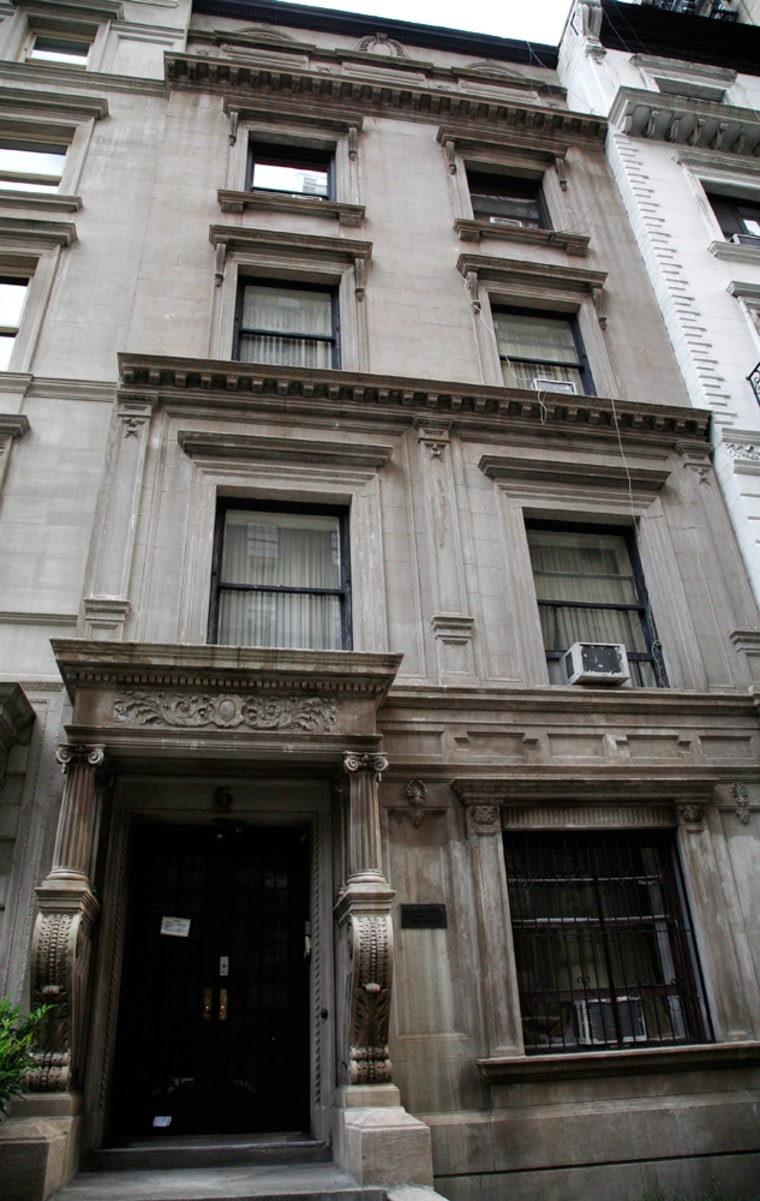Think you have a tax problem? A Supreme Court ruling this week could leave Uncle Sam, and American taxpayers, liable for untold millions on U.S. diplomatic properties abroad.
While New York City celebrates the decision allowing it to sue foreign governments for more than $100 million in back property taxes, the State Department is bracing for retaliation overseas.
The fear is that governments will take similar measures against the United States, which maintains the world's largest diplomatic presence with more than 3,500 buildings. Many of them could be subject to taxation by local authorities and lawsuits to recover money owed.
More broadly, the finding could also jeopardize traditional rights and privileges that date back to ancient Greece and are enshrined in international treaties, notably the Vienna Convention, which grants immunity from most civil and criminal prosecutions to diplomats on foreign soil.
The court's 7-2 ruling chipped away at some of those immunities by finding that New York has jurisdiction to sue the governments of India and Mongolia for nearly $20 million, more than $41 million with interest, in property taxes local authorities say are owed on residences at the countries' U.N. diplomatic missions in Manhattan.
Officials in New York now say they will use the decision to go after other governments they accuse of refusing to pay property taxes — and millions more in unpaid parking tickets.
U.S. backed India, Mongolia
The Bush administration had sided with India and Mongolia in the case, citing the potential for grave damage to the conduct of foreign affairs if the justices upheld a lower court ruling in favor of New York.
The State Department on Friday declined to comment on the possible ramifications of the decision, stressing that the ruling means only that New York can take India and Mongolia to court.
"This is not a decision on the merits of the case," said Kurtis Cooper, a department spokesman.
Privately, one senior department official said it could open a "Pandora's Box" of ills for the United States abroad.
Such concerns were expressed in a legal brief filed with the Supreme Court on behalf of India and Mongolia by the Departments of State and Justice.
A ruling for New York "is likely to have adverse consequences for the nation's foreign policy, including retaliatory measures taken against the United States," it said, noting that a ruling for New York would create the perception that the U.S. is not upholding its international obligations.
"There is also a danger that foreign governments will retaliate by placing liens on United States-owned real property abroad or otherwise hindering the ability of the United States' missions abroad to buy, sell and construct diplomatic properties," it said.
Might U.N. sue U.S.?
The brief noted that one unnamed country has already blocked the proposed purchase of a U.S. diplomatic property because of the situation in New York. The departments predicted that the United Nations might sue the United States at the International Court of Justice in The Hague.
New York is trying to collect property taxes from countries that house their U.N. or consulate employees in the same buildings where they operate diplomatic offices, which are exempt from taxes.
Under the U.S. Foreign Sovereign Immunities Act, the jurisdiction of American courts does not extend to foreign governments, but there is an exception when "rights in immovable property" are at issue.
That provision is not generally recognized abroad and although the Supreme Court decision is narrow, international law experts warned it may now be applied by foreign municipalities with the potential for even more punitive measures.
For example, they said, the cash-strapped localities of Baghdad and Kabul could now argue that Washington should pay taxes on the U.S. embassies there, both of which contain housing quarters for hundreds of staff. If the United States objects, they could decide to sue given the Supreme Court ruling.
"The cornerstone of diplomatic relations is reciprocity; without reciprocity the whole system fails," said lawyer Andrew Odell, a former general counsel for New York City's U.N. and Consular Corps Commission. "Any affected country will in some fashion seek retribution. They will do something to mete out reciprocity, it's just the nature of bilateral relations."
In addition to hauling the United States government into court, foreign countries could levy special taxes on U.S.-owned properties, set up new real estate rules or even go beyond the New York case to apply other restrictions on diplomatic conduct, he said.
The United States is currently embroiled in a dispute with the City of London over whether U.S. diplomats must pay a "congestion tax" for using vehicles in the British capital.
The Supreme Court ruling may make it more likely that British authorities will abandon traditional diplomatic negotiations and resort to a lawsuit to settle the matter.
"Will this override Iraq, North Korea or the Middle East as a foreign policy issue? No. But it will create serious problems," Odell said.
A spokesman for the Indian diplomatic mission in New York, Vikram Doraiswami, said that India has not yet decided how it will respond to the ruling and that his government is likely to wait to see how the New York District Court rules in the case before considering reciprocal action.
The Mongolian mission did not return calls seeking comment.
